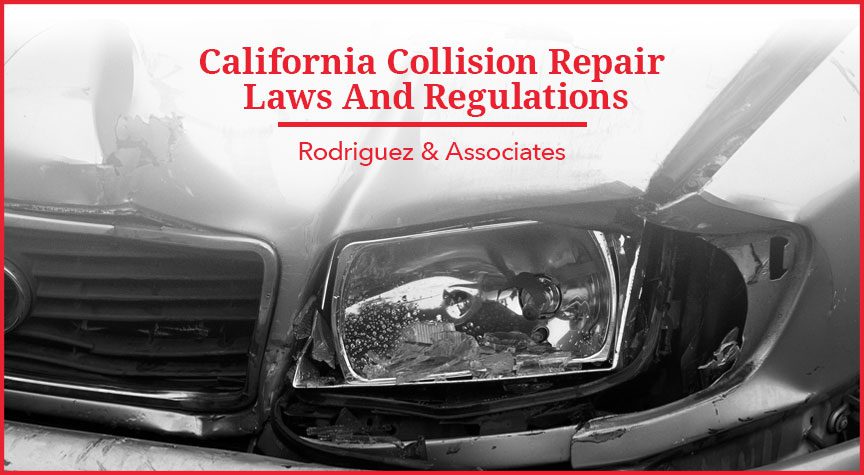After an auto collision, one of the main goals for victims is to repair the damage to their vehicles. In California, collision repair laws and regulations determine how and when a vehicle owner can get auto repairs. As a California car accident victim, you must comply with regulations through your insurance company and state laws to receive repairs as well as reimbursement for the costs. Here is a breakdown of some of the most important related laws.
Mandatory Repair Estimates
Most states require auto mechanics to provide consumers with a price estimate before beginning any work. Some repair shops charge a fee to provide an estimate, but if so, they must notify customers about these fees. Receiving an estimate beforehand can allow the consumer the choice to go to a different shop for a better price. Many states also require that the final cost of the repairs do not exceed a certain percentage over the original estimate. This helps to prevent any major cost surprises.
Unauthorized Repairs
As a consumer, you have the legal right to approve or deny proposed mechanic services on your vehicle. If the auto shop calls and sends you an estimate and you tell them not to proceed with the repairs, the shop must comply with your wishes. Should the shop proceed to make the repairs and then demand payment, you do not have to pay for the unauthorized repairs – as long as the repairs rendered were not vital to another repair you ordered. If the mechanic refuses to release your vehicle, you may be able to file a lawsuit against him or her.
Mechanic’s Lien
If a vehicle owner refuses to pay for repairs already rendered, the auto shop has the legal right to keep the car. The shop owner could take out a mechanic’s lien against the owner of the car. A mechanic’s lien states that the shop owner will be the legal owner of the vehicle if the original owner fails to pay what he or she owes the owner. A lien is any legal claim against property that someone else has serviced or improved. A mechanic will have the right to keep and sell a vehicle with a lien, even if the car is a $35,000 luxury vehicle and the owner only owes $50 in repairs.
Consumer Protections From Unfair Practices
All consumers, including vehicle owners, have the right to fair business dealings in the U.S. It is against the law for an auto shop to engage in unfair or deceptive acts and practices. This includes deceptive automobile sales and the intentional selling of lemons (defective vehicles). Repair shops legally have to disclose certain information to customers, including details of a price estimate and whether replacement parts were new or used. Some federal laws also require same-day repairs on simple jobs, as well as cost-free corrections if the mechanic performs low-quality work.
California-Specific Laws
California’s automotive repair laws require a written price estimate for any repair work, a detailed invoice including a breakdown of all work done and parts used, and a return of replaced parts, if the consumer requests it at the time of placing the order. If the actual repairs will cost more than the estimate, someone from the shop must contact you, describe the situation, and get your permission before proceeding.
If you are unhappy with the quality of work, you have the right to demand better repairs by speaking directly to the repair shop. Remain calm and courteous, and explain your problem in detail. If you are willing to negotiate, do so on your own. Otherwise, if the shop cannot resolve the issue in accordance with your rights under the Automotive Repair Act, you may have the right to file an official complaint with the Bureau of Automotive repair. A Bakersfield personal injury lawyer can help you with your complaint and a subsequent lawsuit, if applicable.
